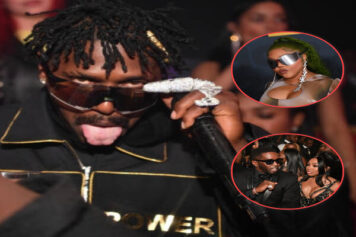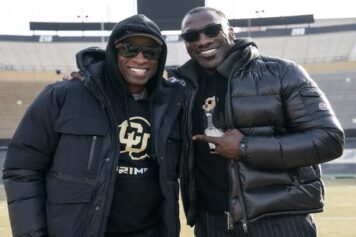With dark humor and a mafia story that’s centered in the suburbs, The Sopranos was unlike anything ever experienced in an episodic television format.
20 years ago, on January 10th of 1999, New Jersey mob boss Tony Soprano reluctantly sat across from his therapist, Dr. Jennifer Melfi, seeking psychiatric help for the panic attacks that were hindering his business and home life.
At the time, few realized that we were on the verge of a television revolution.
With dark humor and a mafia story that’s centered in the suburbs, The Sopranos was unlike anything ever experienced in an episodic television format.
The series ran for six seasons, totaling 86 episodes of narcissism, uncompromising brutality, hilarity and complex human interactions that had never been seen before within the mafia storytelling construct.
Many believe that it’s the greatest television series of all time. And it established HBO, who’d experienced some prior success with the prison drama Oz, as the go-to spot for hour-long dramas of depth and nuance that felt like individual feature films that became connected to larger story arcs.
From that opening episode, you knew you were entering something different with the hypnotic theme song that rode into its pulsating beat with, “Woke up this morning, got yourself a gun…”
Tony boasts that he’s a waste-management consultant as the series kicks off, but as the de facto head of the Di Meo crime family, he and his cronies have their grubby hands in innumerable criminal enterprises that stretch from New Jersey’s docks to construction jobs, labor unions, an “executive card game,” sports books, loan-sharking, protection rackets, truck hijackings, urban renewal property scams, stolen goods and a strip club named “The Bada Bing” just to name a few.
If you’ve never seen The Soprano’s, it’s required viewing. The writing, characters, cinematography, acting and dialogue blend together effortlessly. Somehow, as the depth of Tony’s sinister character is exposed he becomes likable, yet at the same time disgusting.
Much like The Wire, HBO’s other phenomenal offering, The Sopranos unwinds like the great American visual novel, stunning in its weaving of both high-end drama and side-splitting comedy.
The main characters are unforgettable, even 20 years removed from their debut. From Tony and his wife Carmela, on through Pauli Walnuts, Ralph Cifaretto, Janice, Christopher Maltisante, Adriana La Cerva, Bobby Bacala, Uncle Junior, Silvio, Big Pussy, Livia, Richie Aprile, Artie Bucco, Johnny Sack, Phil Leotardo, Tony Blundetto, Vito Spatafore and a few others, a large tapestry is woven that provides some incredibly sincere moments when removed from the standard idiocy, brutality and violence.
“Hope comes in many forms,” Dr. Melfi tells Tony in one of their first sessions.
“Well, who’s got the time for that?” he says in response.
If you’ve never seen a single episode of the show and want to get a taste of its brilliance, “The Pine Barrens” installment from season 3 delivers on every level imaginable.
The story of Paulie and Christopher getting lost in the woods after a botched killing that erupted unexpectedly is the perfect example of the show’s dark sense of humor. When Christopher says, “His apartment looked like shit,” within the context of what was actually going down and after receiving some critical information from Tony, it’s difficult to reconcile the laughter that bubbles up inside you, given the circumstances they’ve put themselves in.
And in many ways, The Pine Barrens foreshadowed the fact that every situation wasn’t always going to be neatly wrapped up, there’d always be some lingerings that a full closure wasn’t coming, nor was it necessary.
Other must-see episodes include “College” from the first season, when Tony takes his daughter Meadow on a tour of New England colleges and runs into an associate that’s now hiding out in witness protection. And then there’s “Bust Out” from season 2, where Tony destroys a former high school buddy that got in over his head with gambling debts.
“Pie-O-My,” from season 4, is shocking in its diametrical positions of love and gut-wrenching brutality when Tony falls in love with a racehorse that Ralphie has other plans for.
https://www.youtube.com/watch?v=IJ3bh49yW50
The Sopranos ushered in a new era for the mafia genre through its depiction of modern day life in the suburbs, the trappings of criminal wealth and power, its exploration of mental illness, along with Italian family dynamics and gender roles.
Following its initial airing 20 years ago, The New York Times stated, “[The Sopranos] just may be the greatest work of American popular culture of the last quarter century.”
And now 20 years later, that rings true even louder.



